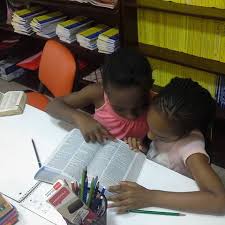MY CART
- No products in the cart.
Subtotal:
₦0
BEST SELLING PRODUCTS
₦100
Writing well starts from paying attention to those simple but yet essential part of writing like punctuation, grammar, paragraphing and content development.
Here are a few rules to help children learn the basic rudiments of writing in becoming better writers.

Most children and even adults go straight to start their writing task without a plan. Midway into writing, they get stuck and are unable to continue. Encouraging your child to brainstorm on what they want to write and how it should be written before they start the actual writing will help them to have a well-detailed, organised and developed content.
2.NEVER submit your first draft for assessment because it will be filled with errors. Go on to revise and edit before submitting.
Children should be taught and made to go over their written essay before turning it in. Doing this will enable them to revise the piece to make it better and edit all errors to present a well-written article.

3. You must always CAPITALISE all letters of the title or capitalise the initial letters of the words of the title except conjunctions, prepositions and articles.
Writing titles is one of the simplest and yet important parts of writing, but one in which most people do not write correctly. Teaching children how to write titles appropriately from an early age will help them do it right even as they grow older.

4. Organise all ideas that go together in one paragraph and use connectives to link up your sentences and paragraphs. ALWAYS think of a new connective to start a new section.
Many times, writers lump different ideas in a paragraph giving room for ambiguity and misunderstanding of the text. In planning for a text, writers are encouraged to organise their thought process to identify the central part of their documents and place them in different paragraphs, while adding details to each paragraph to develop the content of the piece. It is also imperative to introduce children to a range of connectives/transition words (after, meanwhile, later, therefore, after a while, then, when, but, furthermore) that should be used to introduce and link sentences and paragraphs while writing.

5. If you must start it, you must capitalise it. ALWAYS start a new sentence with a capital letter.
It is a common error amongst children to start a new sentence with a lower case letter, and this only makes one a shoddy writer. Children have to be redirected each time they start a sentence incorrectly to do it right till they get it right the first time they engage in any writing activity.
6. If you start it, you must end it. ALWAYS use the correct end punctuation mark at the end of your sentence.
Most times, sentences are written without end punctuation marks added, and this makes an article sloppy. When writers go over their work before the final draft, the focus should be placed on ensuring all sentences have been appropriately ended.
 7. NEVER write the personal pronoun ‘I’ without capitalising it. It MUST ALWAYS be written in the capital letter, even in the middle of a sentence.
7. NEVER write the personal pronoun ‘I’ without capitalising it. It MUST ALWAYS be written in the capital letter, even in the middle of a sentence.
It is an error while writing in the first person viewpoint to use the small letter ‘i’ in writing the singular personal pronoun ‘I’. Children and adults alike, need to get used to writing the personal pronoun ‘I’ in the capital form, anywhere it appears in a sentence.
8. ALWAYS start a proper noun with a capital letter.
When children can identify what proper nouns are, (specific names of people, places, things; days of the week, months of the year, special days etc.), they should be instructed and guided on always starting them with capital letters.
 9. Use a thesaurus and a dictionary to find new and more powerful words to replace dull and common words.
9. Use a thesaurus and a dictionary to find new and more powerful words to replace dull and common words.
The dictionary and thesaurus should be the most prized possessions of a writer in finding better and more vivid words to use in creating exciting and captivating pieces.
10. Make sure your final piece is neat, well-written with legible handwriting before you submit.
A written work is a self-portrait of the person who does it. Children should be taught to autograph their work with excellence.
